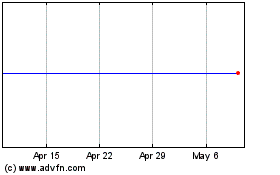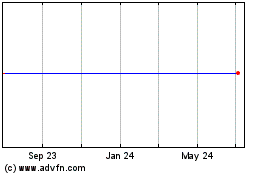BHP Billiton CEO Pay Packet Shrinks -- Update
September 22 2015 - 11:56PM
Dow Jones News
By Rhiannon Hoyle
SYDNEY--The pain from slumping commodity prices is being
mirrored in the pay packages of BHP Billiton Ltd.'s top ranks as
the mining company slashed directors' wages and Chief Executive
Andrew Mackenzie's salary package was cut nearly in half for the
past fiscal year.
On Wednesday, BHP said Mr. Mackenzie earned US$4.6 million in
cash and stock options, in addition to other benefits such as
pension contributions, for the year through June. That was down 43%
from the US$8 million pay package he received a year earlier, which
was his first at the helm of the world's largest miner by market
value.
Softening demand for commodities such as iron ore and crude oil,
coupled with rising supply, have made it more difficult for
executives like Mr. Mackenzie to hit performance targets that were
set years earlier during a China-led boom. Global miners including
BHP have reported steep reductions in profits, which have often
been weighed by hefty write-downs on assets acquired when commodity
prices were peaking.
BHP, which recently reported its weakest annual earnings since
2003, also said it was cutting pay to its chairman by 13% and would
reduce the fees for nonexecutive directors in response to the weak
outlook for commodities.
Mr. Mackenzie's total pay declined after shareholder returns
slumped, the company took US$2 billion in impairment charges
against its onshore U.S. petroleum business and five workers were
killed at its global operations, which span from Australia's arid
Pilbara region to the high peaks of the Andes in Chile.
BHP said total shareholder return fell 15% over the five years
through June compared with a 4.5% decline in the peer group that it
measures itself against.
Some analysts, however, question whether that measure remains
relevant as the global resources sector downshifts. "Setting
appropriate long-term targets for resources companies is a
challenging task, but we believe remuneration needs to be more
nuanced than the current focus on total shareholder return,"
Goldman Sachs said in a Sept. 10 note.
BHP said it would "continue to listen and give attention to
feedback and views from shareholders on the group's approach to
pay."
It also praised Mr. Mackenzie's stewardship of the spinoff of
South32 Ltd., which was carved out of the group earlier this year
to house some assets such as alumina refineries and manganese mines
that the company decided were no longer core operations.
The pay package of BHP's top executive is now well below levels
awarded when commodity prices were booming. When Mr. Mackenzie took
on the role in May 2013, he agreed to a base salary that was almost
25% less than that collected by his predecessor, Marius Kloppers,
as well as a lower pension payout and smaller maximum bonus.
The company said it would keep Mr. Mackenzie's base salary of
US$1.7 million unchanged for the year ahead. BHP also froze wages
for the rest of its executive team.
However, pay for BHP Chairman Jac Nasser and the miner's
nonexecutive directors, which has remained flat since 2011, will be
pared back, the company said. Most miners remain focused on
austerity as a decadelong commodity price boom ends.
"The board, with support from the chairman, has decided to
reduce the chairman's fee" by 13% to US$960,000 a year, BHP said.
Mr. Nasser and Mr. Mackenzie also decided to cut the annual base
fee of nonexecutive directors by 6% to US$160,000, it said.
Write to Rhiannon Hoyle at rhiannon.hoyle@wsj.com
Subscribe to WSJ: http://online.wsj.com?mod=djnwires
(END) Dow Jones Newswires
September 22, 2015 23:41 ET (03:41 GMT)
Copyright (c) 2015 Dow Jones & Company, Inc.
BHP (NYSE:BBL)
Historical Stock Chart
From Mar 2024 to Apr 2024

BHP (NYSE:BBL)
Historical Stock Chart
From Apr 2023 to Apr 2024
